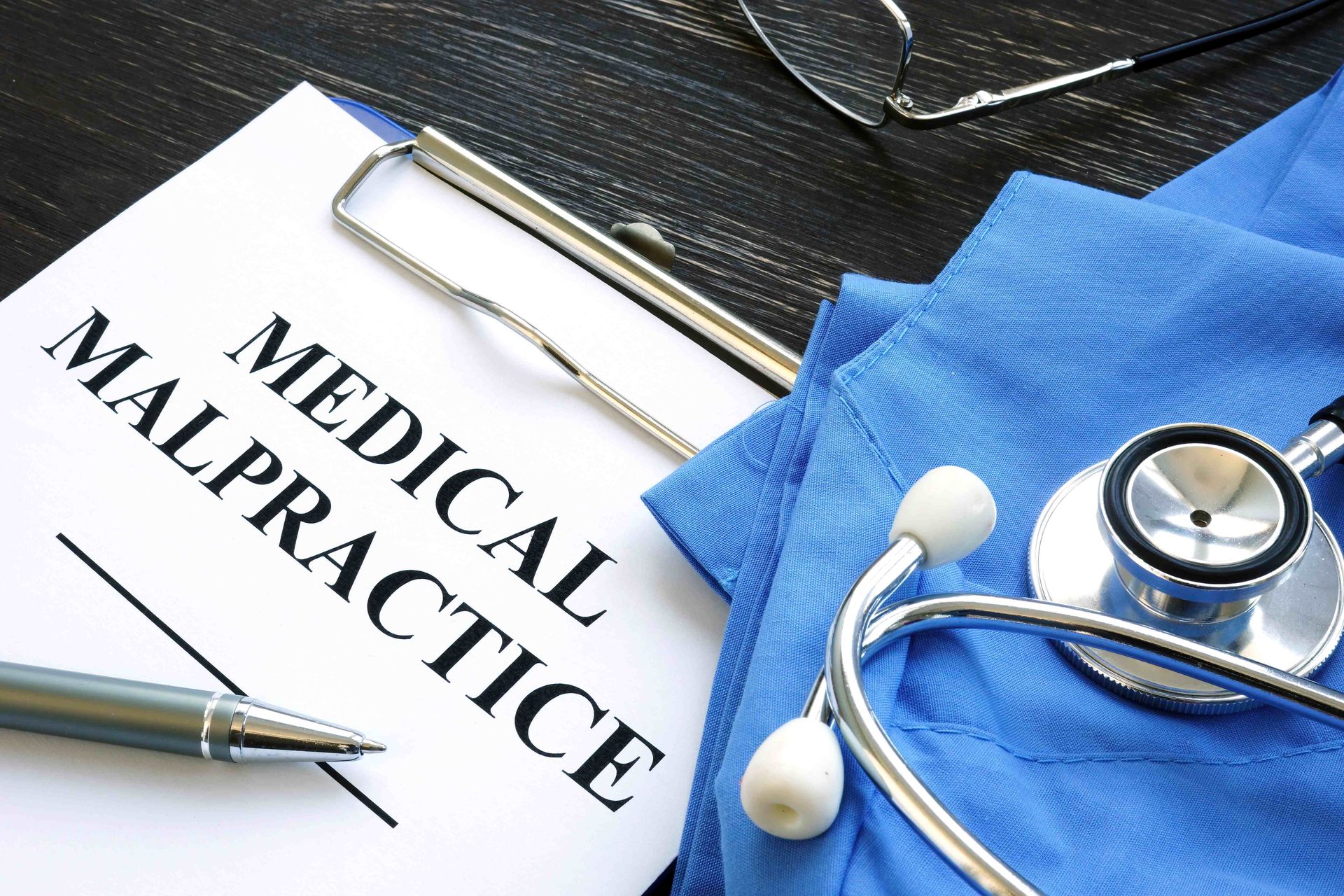Types of Doctors for Medical Malpractice Claims
Some people are surprised to know that medical negligence is not always committed by a doctor. In fact, multiple healthcare providers and facilities can be responsible for the negligence that leads to a malpractice case. A primary task of a medical malpractice lawyer is proving the negligence that leads to the injury, as well as identifying who is at fault.
The American Board of Professional Liability Attorneys (ABPLA) states that medical malpractice occurs when a hospital, doctor, or another healthcare professional, through a negligent act or omission, causes an injury to a patient. In this article, we’ll discuss the different types of doctors, medical professionals, and other parties who may be sued in a malpractice case.
If you’ve suffered from medical negligence and are unsure who may be the responsible party, contact our seasoned medical malpractice lawyers today. We can help you understand the framework for your malpractice case and begin building a strategy. Call today at 1-833-MedMals or email us at info@thedoctorlawyerfirm.com .
1. Surgical Malpractice Liability
Commonly, medical malpractice claims arise as a result of negligence before, during, or after surgery. From medical tools being left inside patients to improper diagnoses leading to unnecessary surgeries, surgical errors can lead to horrible outcomes for patients. There are three common stages in which surgical malpractice can occur:
1. Preoperative Care . Surgical errors sometimes happen during the surgical planning stages. A question at play when errors happen pre-operation is whether the surgeon properly consulted the patient. During this stage, a surgeon must identify the correct patient, ensure medical history is updated, assess any surgical risks, and inform the patient of those risks. Parties other than the surgeon can be at fault during this stage, too. An example of another medical professional who may be responsible in this stage is the anesthesiologist, who also has the opportunity to check the patient’s identity and medical history, as well as provide the right medication and dosage before surgery.
2. Care During Surgery . Surgeons must be careful by nature. When they are not, surgical negligence can occur. The surgeon and her team must be well-qualified to perform the surgery in question, taking proper care to ensure the safety of the patient. With general surgical risk, it’s imperative for the operating doctor to be attentive, alert, and knowledgeable.
3. Postoperative Care . Care after the surgical procedure is vital– the treatment doesn’t end once the patient is off the operating table. Recovery should be monitored, ensuring the patient’s understanding of the post-op procedure and that the patient remains infection-free. A medical malpractice lawyer can help you identify which stage medical negligence may have occurred.
2. Nursing Negligence & Malpractice
Nursing malpractice occurs when a nurse has been negligent, resulting in the injury of a patient. There are a few situations in which a nurse might be proven at fault in a malpractice case, including failing to provide care to patients, injuring a patient with equipment, failing to acknowledge alarming vital signs, and improper administration of medication.
Often, the primary issue in a nursing malpractice case is identifying who is liable for the nurse’s negligent actions. Sometimes the hospital may be identified as the responsible party, in the case that the nurse was employed by the hospital, performing a job duty when the patient was injured, and an independent doctor, unassociated with the hospital, was not in charge of the nurse.
In the case that the nurse was under the supervision of an attending physician, the hospital may not be the defendant in a nursing malpractice case. This happens if the doctor was present and/or had authority or control to prevent the nurse’s negligence when the injury occurred.
3. When the Hospital Is Responsible
As with nursing malpractice, the hospital is sometimes the defendant in medical malpractice cases. Hospitals can be proven to be directly responsible for negligence or held “vicariously” liable for the negligence of their employees, as with the above nurse malpractice example. This is stated under the legal doctrine of “respondeat superior,” which ensures there will be a financially responsible party to compensate the injured plaintiff in a medical malpractice case.
An example of when a hospital might be held responsible is when it has failed to perform necessary and reasonable inquiries at the time of hiring its medical professionals. This might occur when a hospital has hired and granted privileges to a physician whom the hospital knew or should have known was incompetent to treat patients.
Another example of when a hospital is at fault in a medical malpractice case is when it has failed to ensure a sufficient number of providers are on duty at any given time. If an injury happens as a result of a nursing staff shortage, for instance, the hospital can be held accountable.
4. When Pharmaceutical Companies Are Liable
Sometimes medical malpractice lawyers are tasked with proving medical malpractice occurred because of a pharmaceutical company. This happens when a pharmaceutical company failed to warn doctors of a drug’s potential side effects and dangers that might put a patient in jeopardy. If the manufacturer has adequately and reasonably researched the drug and informed the doctor of its potential adverse reactions, it cannot be held liable in a malpractice case. Its primary duty is to the physician, not the end consumer. The duty pharmaceutical companies have to end consumers is to ensure the drug or device is reasonably safe when used as intended by the patient.
In most cases, the physician prescribing the drug is considered a “learned intermediary,” which means her superior medical knowledge, assuming she has been given adequate knowledge by the drug manufacturer, has the most authority to prescribe a patient’s medication or device that is appropriate for the specific patient. Otherwise, medication errors are often the liability of a different party outside of the drug manufacturer.
Conclusion
Multiple parties can be liable, depending on a patient’s specific medical malpractice case. Understanding who may be the responsible party is an important key to a medical malpractice lawyer’s legal strategy.
If you have reason to believe that you have a medical malpractice case and you or a loved one is suffering from an injury, contact our attorneys today to set up a consultation. Call us today at 1-833-MedMals , email us at info@thedoctorlawyerfirm.com , or fill out our online form . We look forward to helping you get the compensation you deserve.
RECENT POSTS





